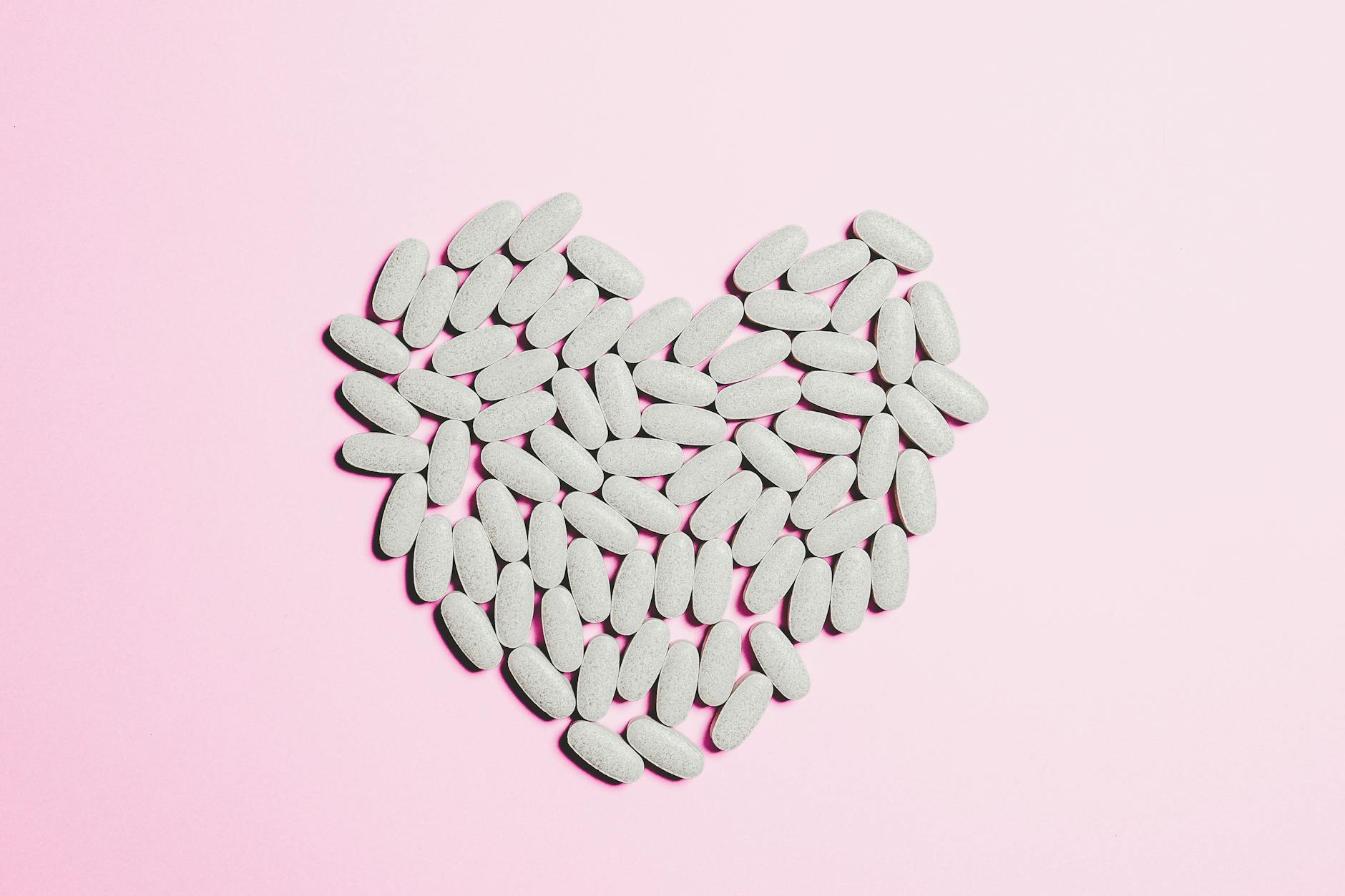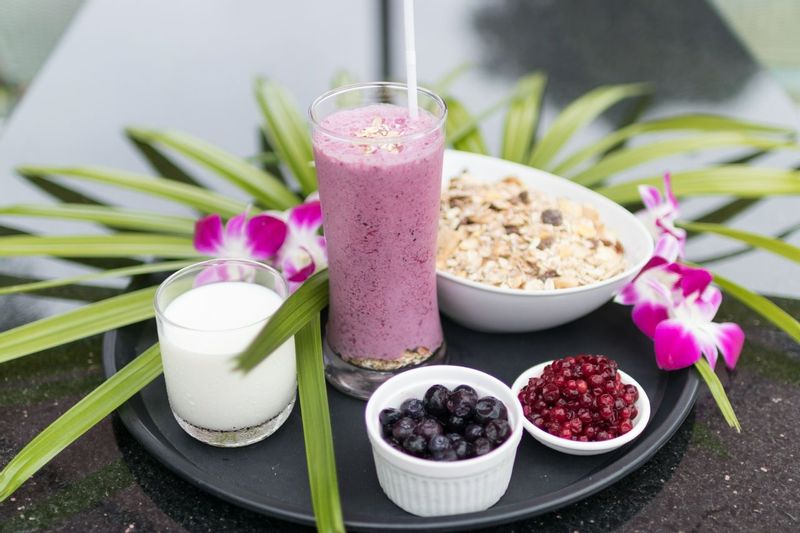The Health Benefits of Nutritional Vitamins & Supplements
- Published: 23 February 2018 23 February 2018
Interview with a Medical Advisor
How can nutrition help in the prevention or treatment of illness?
The body requires a continual supply of a wide range of essential nutrients to maintain normal functioning. Some of these nutrients, such as vitamin C, can only be obtained from our diets, however other nutrients are manufactured entirely within the body. Deficiencies of such nutrients have been linked to the development of many disorders, including cardiovascular disease and cancer.
A good example of how nutrition can help in the treatment or prevention of disease is that relating to coenzyme Q10 (CoQ10). CoQ10 is a vitamin like substance that plays a key role in supplying all cells with energy, and adequate CoQ10 levels are particularly important in tissues with a high energy requirement- such as the heart. Although some CoQ10 is obtained from the normal diet, most is manufactured within the body; as people age, their capacity to manufacture CoQ10 declines.
A recent study on CoQ10 found that supplementation with our own Bio-Quinone Active Q10 improved heart health and reduced the risk of cardiac related mortality by more than 50%.
Why is it necessary to complement our normal diet with nutritional supplements?
Nutritional supplementation allows us to correct deficiencies of key nutrients in the normal diet. Such deficiencies may occur for a variety of reasons, for example increasing reliance on processed convenience foods, changes in farming practice, insufficient exposure to sunlight, and the effects of ageing.
As examples, vitamin C is easily destroyed by food processing or cooking. Similarly, highly refined foods contain relatively little of the essential minerals chromium and magnesium. In fresh foods, intensive farming practices have resulted in the decrease of a number of important vitamins and minerals. Many people in the UK are deficient in vitamin D (produced in the skin during exposure to UV light), particularly during the winter months. Finally as people age, their ability to absorb essential nutrients from the digestive tract decreases.
Because nutritional supplements are not regulated in the same way as prescription medicines, it is important to choose supplements manufactured under pharmaceutical control as a guarantee of product quality and safety.

Boost your nutrition with a vitamin enriched detox juice
What are some of the most predominant health issues that vitamin supplements are used for?
The use of nutritional supplements to correct dietary deficiencies in particular at-risk sections of the UK population is well established; examples include supplementation with folic acid during pregnancy to prevent birth defects, iron supplementation to prevent anaemia in women of reproductive age, and vitamin B12 to prevent potential deficiency in vegans. However the health issue most affecting the UK population as a whole is arguably vitamin D deficiency, which is estimated to affect more than 50% of the UK population.
Vitamin D is produced within the body when the skin is exposed to sunlight. It is important for the absorption of calcium, helping to maintain healthy bones and teeth, reducing the risk of rickets in children and osteoporosis in adults.
Whilst this has been known for many years, more recent studies have demonstrated a key role for vitamin D in the normal functioning of the cardiovascular, respiratory, digestive, neurological and immune systems.
The major factor contributing to vitamin D deficiency is geographical location. In the northern latitude countries, many individuals do not receive sufficient sun exposure, particularly in winter.
If choosing a supplement look for vitamin D3 which is identical to the form produced naturally in the skin. Oil-based capsules are more easily absorbed by the body compared to dry, chalky tablets.
What supplements would you recommended for travelling on a long-haul flight?
The combination of sitting in the same position for long periods of time, together with the pressurised environment of a plane cabin, can adversely affect blood circulation. This can result in swelling of the ankles (oedema), and more rarely deep vein thrombosis (DVT) following blood clot formation.
Clinical studies have shown that supplementation with the herbal extracts ginkgo (100mg/day) or pycnogenol (100mg/day) can significantly reduce the incidence of oedema of the legs, or risk of DVT, during long haul flights.
Ginkgo is extracted from the leaves of the maidenhair tree and pycnogenol from the bark of the maritime pine tree. Both extracts contain active substances that promote normal blood circulation and inhibit inappropriate blood clot formation.
Supplementation with probiotics (“friendly bacteria”) can reduce the risk of infection (particularly digestive upset) associated with the stress of long-haul travel. It is important to choose a supplement (e.g. Bio-Culture) that provides a daily dose of 10-20 billion probiotic bacteria, which protects the ingredients from damage by stomach acid and does not require refrigeration.
What supplements would you recommended for recovery after intensive exercise?
Individuals undergoing strenuous physical exercise produce increased levels of damaging free radicals. These free radicals interfere with the ability of muscle to contract, contributing to muscle fatigue, as well as damaging the muscle tissue itself. In addition, strenuous and repetitive movements activate an inflammatory response, which can also result in oxidative damage to muscle tissues.
A number of antioxidant (e.g. vitamin C, vitamin E) or anti-inflammatory (e.g. omega 3 or omega 6 polyunsaturated fatty acids) supplements are recommended as an aid to recovery from intensive exercise. One of the best characterised supplements in this regard is CoQ10, which in addition to its key role in cellular energy generation, also has important antioxidant and anti-inflammatory actions.
A number of controlled clinical trial studies have shown that supplementation with CoQ10 (100-300mg/day) improves physical performance, reduces muscle injury and facilitates recovery from intensive exercise in distance runners, volleyball players, cyclists and cross country skiers respectively.

The right nutrition is essential for recovery after exercise
How can supplements help with weight management?
There are a number of natural supplements that can help with weight management.
For example, Bio-CLA + Green Tea contains conjugated linoleic acid and green tea extract which increase fat burning and reduce the proportion of fat within the body. CLA is converted within the body into hormone-like substances which promote fat burning, whilst green tea extract contains active substances which stimulate the metabolism of existing fat stores.
The control of sugar intake and blood glucose levels are important for weight management, as any glucose not immediately used as a source of energy is converted into body fat. Bio-Gluco Control contains natural ingredients Delphinol and chromium, both of which assist in controlling blood sugar levels and help to reduce those 'sugar-cravings'. Delphinol, a maqui berry extract, slows the absorption of glucose from the intestines into the bloodstream. Chromium then works together with insulin to channel glucose into cells where is can be used as energy.
What nutrients would you recommend to support healthy bones and joints?
Most people are aware of the importance of an adequate dietary intake of calcium to maintain healthy bone structure. However, nutrients such as vitamin D, vitamin K and magnesium are equally important in helping calcium reach the bones.
People who rely on processed convenience foods may be deficient in dietary magnesium, and the general population of the UK is at risk of vitamin D deficiency due to lack of sun exposure, particularly during winter.
With regard to joint function, supplementation with glucosamine may help to maintain healthy joints. Glucosamine is used within the body to form more complex molecules necessary for the maintenance and repair of joint cartilage. There are no readily accessible dietary sources of glucosamine and as people age the capacity of the body to produce glucosamine declines. Supplements, such as Bio-Glucosamine can be used as a source of additional glucosamine.
For more information about nutritional supplement company Pharma Nord, visit www.multivits.co.uk




